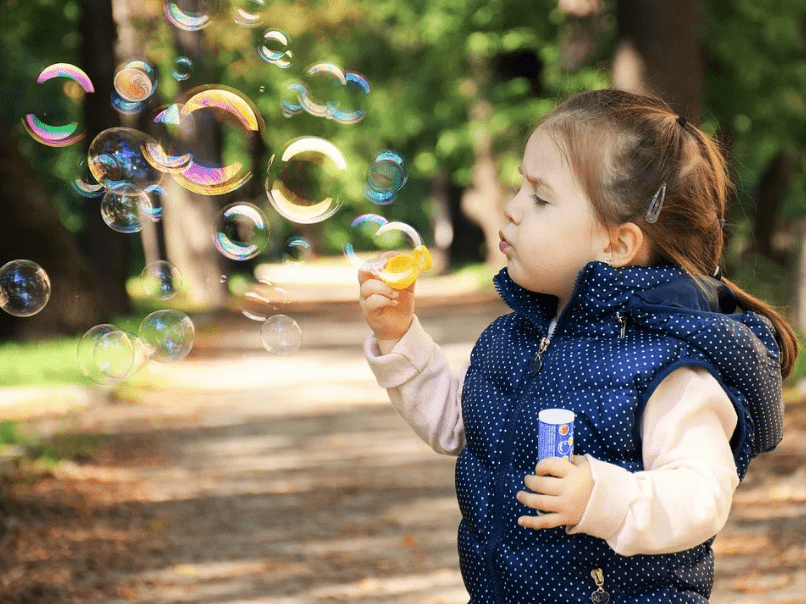Child development alludes to the series of language, thought, emotional, and physical changes that occur in children from birth up to the start of adulthood. During this process, children progress from being dependent on their parents or guardians to be more independent. Events significantly impact child development during the prenatal period and genetic factors passed on by parents. It’s also influenced by the child’s capacity to learn and environmental facts.
Targeted therapeutic intervention and the befitting home-based methods recommended by speech therapists and occupational therapists can actively enhance child development.
Scope of Child Development
Child development includes the entire set of skills a child perfects throughout their life, including growth in:
Cognition – the ability to learn and solve problems
Physical skills – gross motor and fine motor skills
Speech and Language – reading, communicating, and understanding, and utilizing language
Social interaction and emotional regulation – learning self-control and socializing with others
Sensory awareness – the cataloging of sensory information for utilization
Why is child development significant?
Observing and surveying child development is vital to guarantee that a child meets their “developmental milestones.” These milestones are skills that act as a guide to ideal development.
Checking a child’s progress on development at definite age markers against these erratic timeframes ensures that they are on track for their age. If not, checking the developmental milestones can quickly detect any issues in development. This monitoring is often done through pediatricians and child/mother services as infants and toddlers, and later on, through preschool and assessments of school term skills.
The most immediate potential detection of developmental challenges can help minimize the effects these developmental pitfalls can have on children’s skill development and, eventually, their confidence or work as an indicator of a plausible future diagnosis.
Developmental milestone charts or checklists serve as a guide for what’s “normal” for a specific age range and highlight any areas where children might be delayed. However, it’s crucial to keep in mind that while child development has a predictable progression, every child has a unique developmental journey and time frame for meeting the developmental milestones.
Developmental Milestones
Milestones are things children can do by a particular age. Most of them develop abilities and skills in approximately the same direction, but their timeframes aren’t definite. They differ from child to child, just as eye color and skin color do.
All children grow and develop at an individual speed. Take a quick look at some typical milestones for each age range.
Birth to 18 months
During this stage of growth and development, babies start to grow and change quickly.
Doctors recommend speaking to your baby a lot during this period since hearing your voice will help them develop their communication skills.
18 months to 2 years
During their toddler years, children need good nutrition, an intimate, loving relationship with parents and caregivers, and lots of sleep.
3 to 5 years old
During the preschool period, children become more capable and independent. Their inherent curiosity is likely to be spurred on by their expanding world: new environments such as kindergarten or daycare, new friends, and new experiences.
School-age development
During these school years, children are quick to become independent and competent. Friends grow more influential and essential. A child’s self-confidence will be influenced by the social and academic challenges introduced in their school environment.
As a child matures, the parenting trial balances maintaining family connections, enforcing rules, making their own decisions, encouraging them to accept more responsibilities, and keeping them safe.
Despite children’s fast growth and development, they still need caregivers and parents to reinforce healthy habits and set limits.
What to do if you’re concerned for your child’s development
If you’re questioning if a part of your child’s development may be delayed, you have many options.
Your first option is to consult your child’s pediatrician and request a developmental screening. The tools used by doctors are better and more thorough than checklists you find online, and they may provide you with more reliable information about the abilities and progress of your child.
You can also ask for a referral to a developmental specialist from your pediatrician. They include a speech/language therapist, a pediatric neurologist, a psychologist specializing in evaluating children, and an occupational therapist.
If your child is under three years old, you can go to an early intervention program in your area.
If your child is three or older, you can go to a special education director at a public school near you to request a developmental evaluation. Make sure to write down the director’s name and the date so you can do a follow-up if it calls for it.
You must take action right away and always consult a pediatrician if you suspect a development disorder or delay because numerous developmental problems can be addressed more efficiently with immediate intervention.


